Exclusive: In berating Russia for alleged interference in the recent U.S. election, the U.S. intelligence community ignores the extensive U.S. role in manipulating political movements around the globe, observes Jonathan Marshall.
By Jonathan Marshall
The Director of National Intelligence’s public report on alleged Russian hacking opens with a “key judgment” that “Russian efforts to influence the 2016 US presidential election represent the most recent expression of Moscow’s longstanding desire to undermine the US-led liberal democratic order.”
That’s a strong claim. The assertion suggests a fundamental and sustained Kremlin challenge to Western freedom, reminiscent of the early years of the Cold War. That such an unqualified and ideologically charged claim should lead the report speaks volumes about the politicization of the U.S. intelligence community’s leadership. That such a claim has gone mostly unchallenged, aside from Donald Trump, speaks volumes about the powerful ideological consensus in Washington for escalating political and military conflict with Russia.
Yet a recent review of relations with Russia during the Obama years by former U.S. ambassador Michael McFaul — a harsh critic of President Putin — puts the lie to the notion that Moscow has consistently sought to undermine U.S. political interests. At the same time, however, McFaul’s article illustrates the blinders shared by many American policy makers regarding the counterproductive impact on Russian behavior of repeated U.S. electoral and military interventions.
From Cooperation to Conflict
Writing for Foreign Policy, McFaul states that Russian cooperation allowed the Obama administration to negotiate the New START treaty, which slashed the number of missile launchers on each side; implement joint economic sanctions to pressure Iran into dismantling any capability of producing nuclear weapons; open up critical transportation routes for the resupply of NATO forces in Afghanistan; and arrange huge business deals for major U.S. corporations. Russia also cooperated extensively in counterterrorism and persuaded the Assad regime to give up its stockpiles of chemical weapons.
These are hardly the actions of a government with a long-term plan to undermine the United States or the “liberal democratic order.” That order is far more at risk from the Saudi monarchy, whose “export of the rigid, bigoted, patriarchal, fundamentalist strain of Islam known as Wahhabism has fueled global extremism and contributed to terrorism,” to quote The New York Times.
So what went wrong with Russia? As I recently argued, and McFaul acknowledges, one major sticking point in recent years was the Obama administration’s insistence on deploying missile defenses in Eastern Europe, which Moscow interpreted as a long-term threat to its nuclear deterrent. Congressional meddling in Russian affairs by imposing sanctions on alleged human rights abusers also angered the Kremlin. But those issues were not fatal, McFaul insists.
Instead, McFaul claims, the fault lay with Putin’s paranoid reaction to “common people demonstrating in the streets to demand greater freedoms and democratic rule” during the Arab Spring, the 2011 Russian elections, and then in Ukraine. “Putin’s response to those events, first the annexation of Crimea and then intervention in support of insurgents in eastern Ukraine, ended for good our ability to cooperate,” he maintains.
McFaul writes that Putin had “wild theories” about “American financial support for Russian opposition leaders and their organizations,” and about U.S. responsibility for regime change more generally in the Middle East and Ukraine.
“We tried to convince Putin and his government otherwise. We explained that the CIA was not financing demonstrators in Cairo, Moscow, or Ukraine . . . But Putin’s theory of American power — engrained long ago as a KGB officer (and confirmed, it must be admitted, by previous American actions in Iran, Latin America, Serbia, and Iraq) — was only reconfirmed by events during the Arab Spring and especially on the streets of Moscow in the winter of 2011 and spring of 2012.
“In his view, people don’t rise up independently and spontaneously to demand greater freedom. They must be guided, and the Obama administration was the hidden hand. On that, we profoundly disagreed; our bilateral relations never recovered.”
Even Paranoids Have Enemies
McFaul’s parenthetical acknowledgment of past U.S. complicity in regime change all over the world is refreshing. But he dismisses as “phantom” the documented evidence that the Obama administration also sought to overthrow regimes in areas of Russian interest with catastrophic results.
In Libya, for example, Putin was appalled when Obama flagrantly violated his narrow mandate from the United Nations Security Council to protect civilians in the 2011 civil war. That March, President Obama accepted that “broadening our military mission to include regime change would be a mistake.” One month later, he declared, with the leaders of France and Great Britain, “Colonel Gaddafi must go, and go for good.”
A recent British parliamentary report condemning that fundamental change of mission blamed the Western military campaign for triggering Libya’s “political and economic collapse, inter-militia and inter-tribal warfare, humanitarian and migrant crises, widespread human rights violations, the spread of Gaddafi regime weapons across the region and the growth of ISIL in North Africa.”
McFaul is similarly silent about Obama’s promotion of regime change in Russia’s longstanding ally, Syria. Fresh from their disaster in Libya, Obama and his two European partners declared in August 2011 that “the time has come for President Assad to step aside.”
Their proclamation came four months after the Washington Post reported that Obama had continued a covert Bush administration program to fund Syrian Islamists who were engaged in “a long-standing campaign to overthrow the country’s autocratic leader, Bashar al-Assad.” Five years and half a million dead later, can McFaul really paint Putin as paranoid about regime change?
Russia’s 2011 Elections
McFaul also discounts as irrational Putin’s anger over Washington’s alleged intervention in Russia’s 2011 parliamentary elections, which a hostile Secretary of State Hillary Clinton condemned as fraudulent. Putin complained that Clinton judged the elections unfair even before international election monitors announced their findings. He called her comments a “signal for our activists who began active work with the U.S. Department of State” to stage mass protests.
Concerns about the fairness of the election were legitimate. Putin no doubt scapegoated Washington in part to explain the drop in popularity of his United Russia party. However, he wasn’t making up the fact that the U.S.-funded National Endowment for Democracy (NED), created during the Reagan administration to take the place of covert CIA programs to influence civil groups, was “all over the place inside Russia.”
Moreover, according to University of Westminster dean Roland Dannreuther, “For Putin and his entourage, there were clear parallels with Western democracy promotion in the Middle East and rising opposition and societal conflict within Russia,” which had only recently achieved political and economic stability after its near collapse in the 1990s.
“The lesson they took from events in Libya and Syria was that the West’s commitment to ‘democracy’ meant a willingness to break up societies, to use force, and to impose the wishes of an elite pro-Western minority on the majority. The interpretation was that ‘we must not allow the ‘Libyan scenario’ to be reproduced in Syria’. Even more important, of course, was that the ‘Libyan scenario’ should not be reproduced in Russia or in key neighbours, such as Ukraine.”
Regime Change in Ukraine
Ukraine was, in fact, the final straw. After Washington recognized the February 2014 coup against the elected government of Viktor Yanukovych, who was friendly with Moscow, Russia’s rushed to annex (or reunify with) Crimea and back the separatist movement in Russian-speaking Eastern Ukraine. Western powers responded with economic sanctions.
Relations have gone downhill ever since.
Relations have gone downhill ever since.
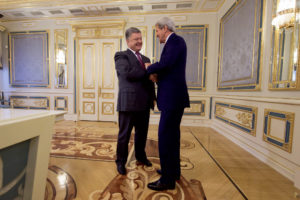
Ukrainian President Petro Poroshenko shakes hands with U.S. Secretary of State John Kerry as he arrives for a metting in Kiev, Ukraine, on July 7, 2016. (State Department Photo)
Although the political opposition to Yanukovych had genuine mass appeal (at least in Western Ukraine), Washington’s hands were all over the movement to oust him and move Ukraine closer to the West.
The demonstrators were publicly encouraged by Assistant Secretary of State Victoria Nuland (former foreign policy adviser to Vice President Dick Cheney) and by the ardently anti-Putin Sen. John McCain. Just weeks before the Ukraine coup, the Russians intercepted a phone call between Nuland and the U.S. ambassador, discussing their picks for new leadership in the country.
U.S. government funds also poured into Ukraine before the coup, through the National Endowment for Democracy, to train grass-roots activists, support key journalists, and foster business groups. In 2013, the president of NED, Carl Gershman, published a blatantly provocative op-ed column in the Washington Post calling Ukraine “the biggest prize” among countries of interest to Russia. He boasted that U.S. programs to pull Ukraine into the Western orbit would “accelerate the demise of the ideology of Russian imperialism that Putin represents” and defeat him “not just in the near abroad but within Russia itself.”
NED: History of Interventions
Putin has had reason to doubt Western claims about “democracy promotion” since Washington and its European allies overlooked Boris Yeltsin’s unconstitutional power grab in 1993 and his blatant manipulation of the 1996 election. That election prompted a famous Time magazine cover story: “Yanks to the Rescue: The Secret Story of How American Advisers Helped Yeltsin Win.”
U.S. interference in Russia’s domestic affairs was soon followed by the so-called “color revolutions” in such former Soviet republics as Ukraine, Georgia and Kyrgyzstan. Columbia University’s Alexander Cooley remarked, “Eurasian elites viewed the color revolutions not as legitimate democratic responses to corrupt authoritarian rule, but as Western-sponsored threats targeting their very survival. These perceptions were supported when various Western NGOs and donors began to publicly take credit for their role in ushering in regime changes . . .”
Cooley added, “the United States has also contributed to the erosion of its own credibility as a promoter of democratic values through the manner in which it dealt with the government of Georgia and its democratic failings in the post-[2003] Rose Revolution period. Indeed . . . the United States’ vigorous support of Georgia contributed to the notion that Washington’s efforts to promote democracy in the post-Soviet space were simply justification for supporting anti-Russian regimes.”
Ukraine’s Orange Revolution in 2004 followed more than $65 million in spending by the Bush administration “to aid political organizations in Ukraine” and “to bring opposition leader Viktor Yushchenko to meet U.S. leaders,” reportedAssociated Press.
Its report continued, “U.S. officials say the activities don’t amount to interference in Ukraine’s election, as Russian President Vladimir Putin alleges, but . . . officials acknowledge some of the money helped train groups and individuals opposed to the Russian-backed government candidate — people who now call themselves part of the Orange revolution.”
American Manipulation
Ian Traynor, the Guardian’s European editor, called the 2004 Ukraine campaign “an American creation, a sophisticated and brilliantly conceived exercise in western branding and mass marketing that, in four countries in four years, has been used to try to . . . topple unsavoury regimes.”
“Funded and organised by the US government, deploying US consultancies, pollsters, diplomats, the two big American parties and US non-government organisations, the campaign was first used in Europe in Belgrade in 2000 to beat Slobodan Milosevic at the ballot box,” he continued.
“If the events in Kiev vindicate the US in its strategies for helping other people win elections and take power from anti-democratic regimes, it is certain to try to repeat the exercise elsewhere in the post-Soviet world.”
As it happened, the campaign in Kiev did turn out to Washington’s liking. Yushchenko — who was married to a former official in the Reagan administration — emerged as Ukraine’s new president and began seeking membership in NATO and the European Union.
Scholars agree that Putin and other Russian elites were deeply shaken by these successive U.S. interventions along their borders. That should have come as no surprise: Washington would have reacted much the same to Russia spending tens of millions of dollars on political revolutions in our backyard, as indeed we did during the Cold War in Guatemala, Cuba, Chile, El Salvador, Nicaragua and Grenada.
The DNI report thus would have been much more correct to state that Russia has long opposed U.S.-led regime changes on its borders and in the Middle East. Moscow is not implacably hostile to American values or interests, as shown by the cooperative behavior it repeatedly showed during the early Obama years.
In order to genuinely advance U.S. interests and better protect our freedoms, therefore, the Trump administration should follow through on the President-elect’s implicit promises to rethink policies that provoke conflict with Russia in the name of promoting democracy.
Jonathan Marshall is author of many recent articles on arms issues, including “How World War III Could Start,” “NATO’s ProvocativeAnti-Russian Moves,” “Escalations in a New Cold War,” “Ticking Closer to Midnight,” and “Turkey’s Nukes: A Sum of All Fears.”
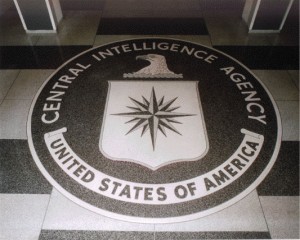
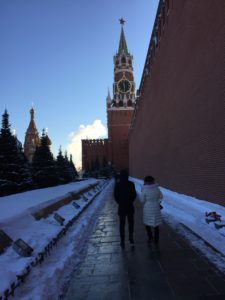
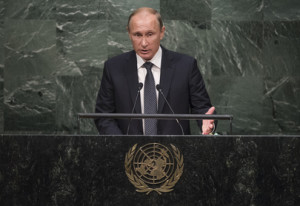
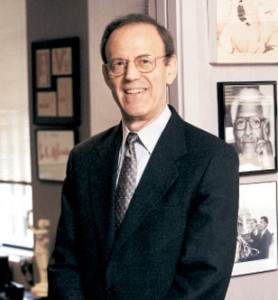

0 Comments:
Post a Comment
Subscribe to Post Comments [Atom]
<< Home